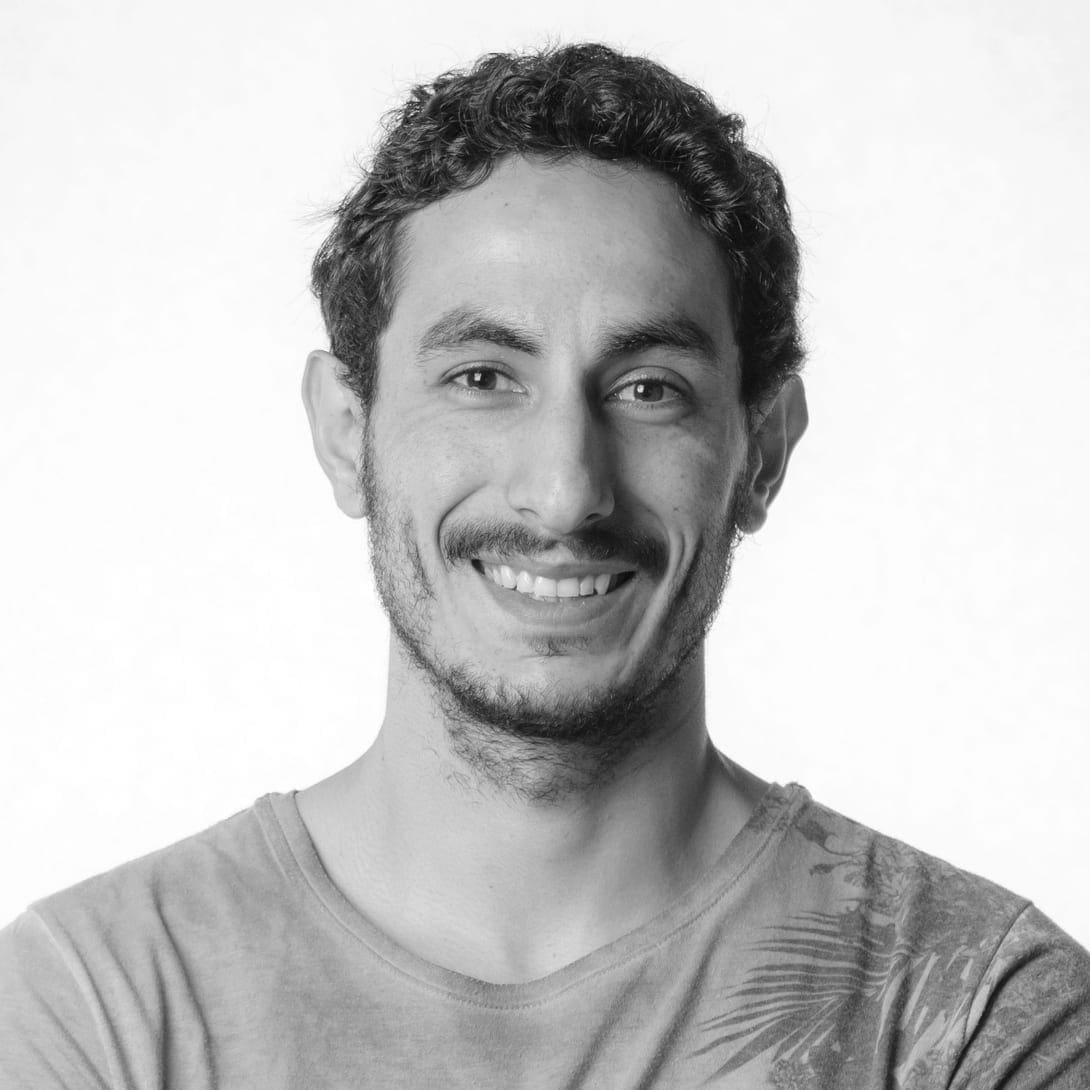“I gripped the door with all my strength as soldiers pulled from the other side,” young man details attack on kibbutz
Fifteen minutes after we entered the shelter, we heard the glass window overlooking the courtyard of the house explode. Immediately, the sounds of people screaming in Arabic shattered our safety. The unmistakable pops of gunfire resonated inside our house, followed by a scuffle at the bedroom door.
- 9 months ago
October 18, 2023
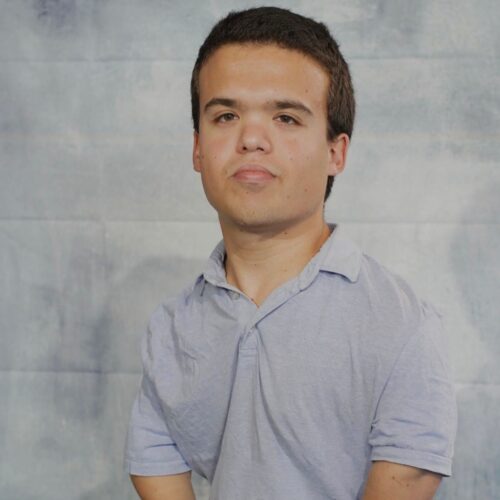
EIN HA-SHLOSHA, Israel ꟷ On Saturday, October 7, 2023, I woke up to the walls of my room rumbling. The sounds of explosions filled the air and I wondered, “Am I dreaming?” When the siren screeched warnings of a missile attack, all doubt faded away. A loudspeaker in the kibbutz echoed, “Red alert, red alert!” Still drowsy from being jarred out of sleep, I went to parents’ room, which serves as our missile shelter.
My mom, dad, and sister awaited me, accustomed to this kind of experience. Probably ten times a year we hear the sirens and rush to the shelter room. Living just a few kilometers from Gaza, we know what to do when the sirens blare. I sat in my parent’s room wondering, “Will this be a short alert today?” I wanted to get back to my bedroom and prepare for the week; I was scheduled to start classes at the university.
Related: Father in Israel fears Hamas kidnapped his two missing sons
No ordinary missile warning: terrorists rattled the door of our shelter
I felt no fear or panic that morning. As was customary, we simply took the necessary precautions to wait it out. Normally, if we hear a missile impact, we stay in the shelter for ten minutes then resume our activities, but this day was different.
Inside the shelter, I hopped on social media and while the signal was poor, I saw posts about attacks in nearby locations. I entered a WhatsApp group with our neighbors and people were saying that Hamas infiltrated the kibbutz. A sense of restlessness left us all feeling very abnormal.
My parents’ room, at first glance, looks like any other bedroom but key differences transform it from a place of rest into a bomb shelter. Specific material covers the walls, dotted by windows with three types of frames. The armored door is 40 centimeters thick. For the first time, I looked around and wondered, “Will this structure hold up when the time comes?” My drowsiness gave way to fear.
Fifteen minutes after we entered the shelter, we heard the glass window overlooking the courtyard of the house explode. Immediately, the sounds of people screaming in Arabic shattered our sense of safety. The unmistakable pops of gunfire resonated inside our house, followed by a scuffle at the bedroom door.
Total anguish consumed me as I tried to reassure my sister, who began crying uncontrollably. I feared the terrorists would hear her and we needed them to believe no one was home. Very quietly, my mother dialed emergency services and they promised us that help was on the way. My father and I held the handle and pushed against the door as we prayed.
We struggled to hold the door closed as terrorist tried to enter
I gripped the door with all my strength as soldiers pulled from the other side, rattling the mechanism inside that kept it locked. The door moved and shuddered as I continued to pray, feeling as though it was slipping away from me. The fear felt like fire in my body, convincing me this was the end for me and my family.
With a broken heart, I suddenly felt I needed to say my goodbyes. I grabbed my mobile phone and, in tears, I wrote to my family and friends, “They are at my house. If anything happens to me, know that I love you.” I hugged my mom, dad, and sister and expressed my love for them too. When that door opened, I vowed to leave this world in peace, but the door held.
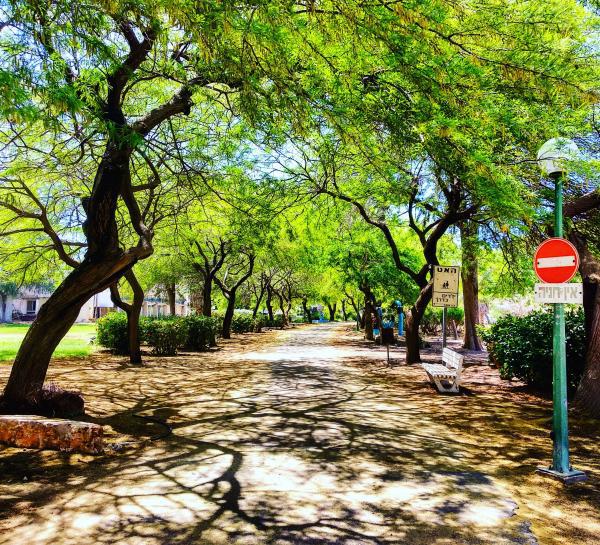
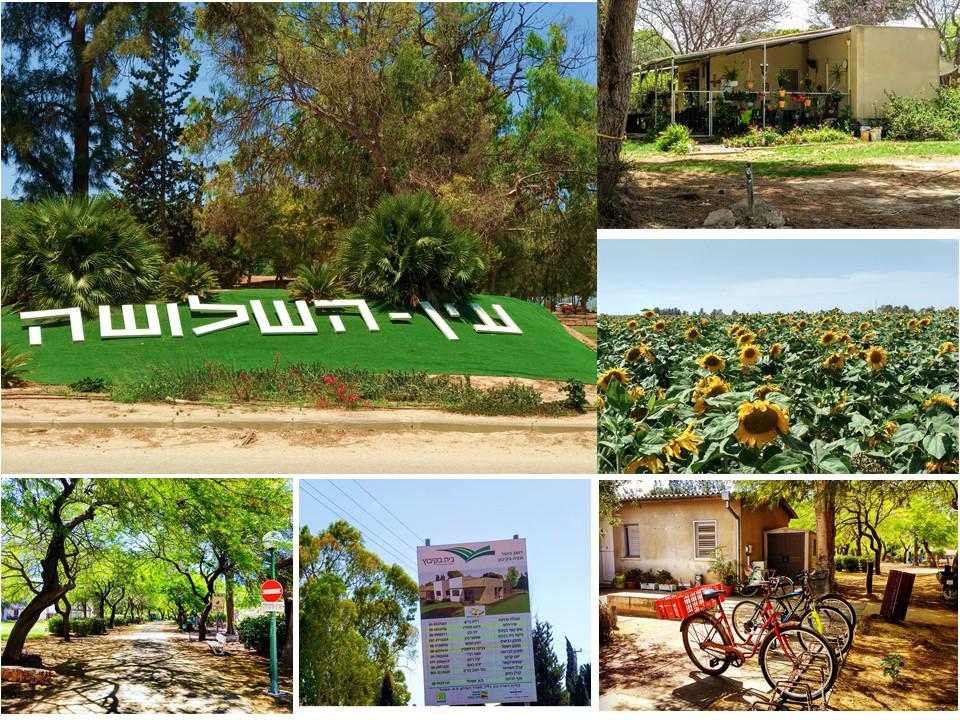
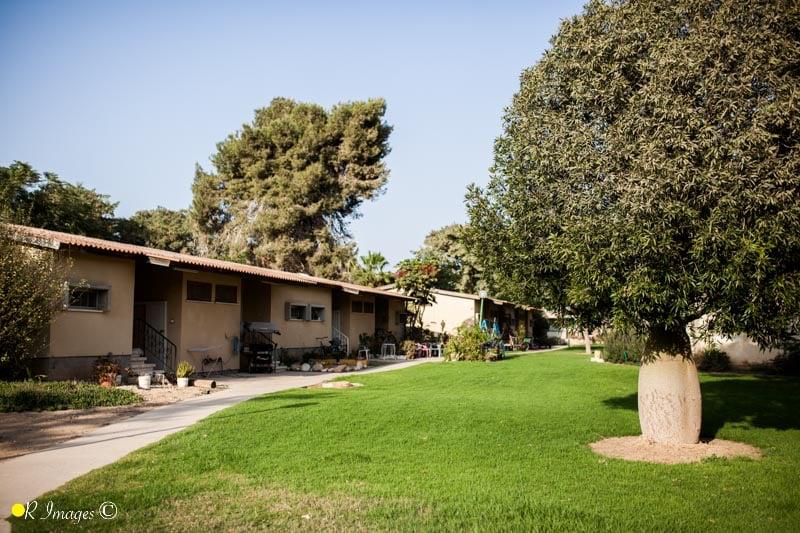
In a matter of seconds, the struggling stopped, and the noises faded away from inside the house. Still, we remained in the shelter. “Are they keeping quiet so we feel safe, and they can trap us,” we wondered. My nerves pumped adrenaline through my body so fast and hard, I was incapable of standing still. I paced back and forth across the room, stopping periodically to hug my family. Eventually, we saw Israeli soldiers through the window. They were calling out our names.
Israeli soldiers finally arrive to save us
We opened the window just a little to get a better look and we saw some of our neighbors outside, walking down the street. Their faces looked pained, but the soldiers had arrived to rescue us. We survived that day, but many did not. Strange feelings mixed together: joy and relief to have lived, and anger for all those who died.
We hugged the soldiers tightly, thanking them profusely while also asking what took so long. We felt relief, but not celebration. Too many people we knew had been brutally murdered. Outside, I looked at my house and I barely recognized it. Everything was thrown into chaos. Hamas set fire to parts of the house and stole some of our things. I noticed they took items not of use, but rather symbolic things – things we valued more than material items. As Argentinian natives, they stole our memories.
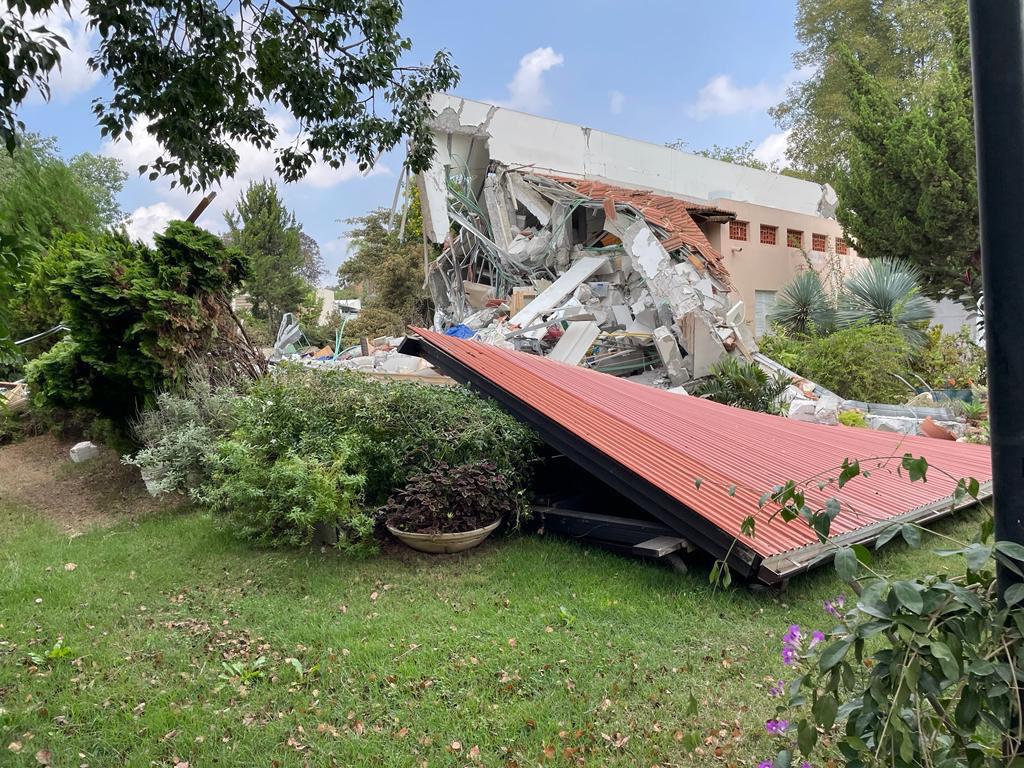
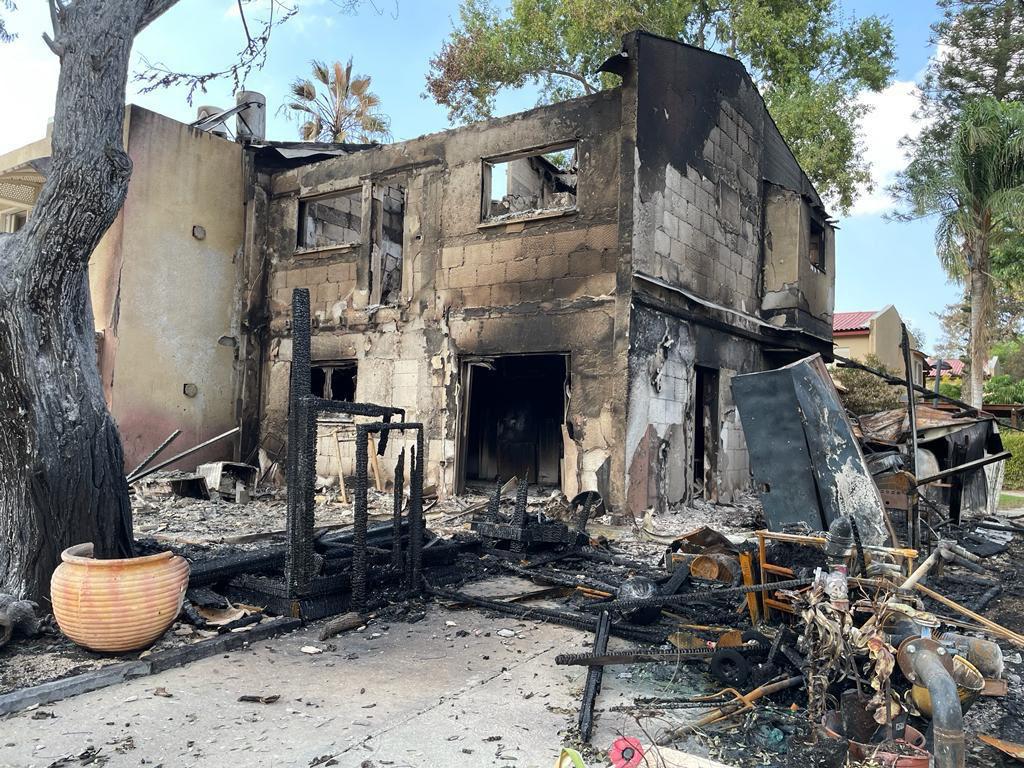
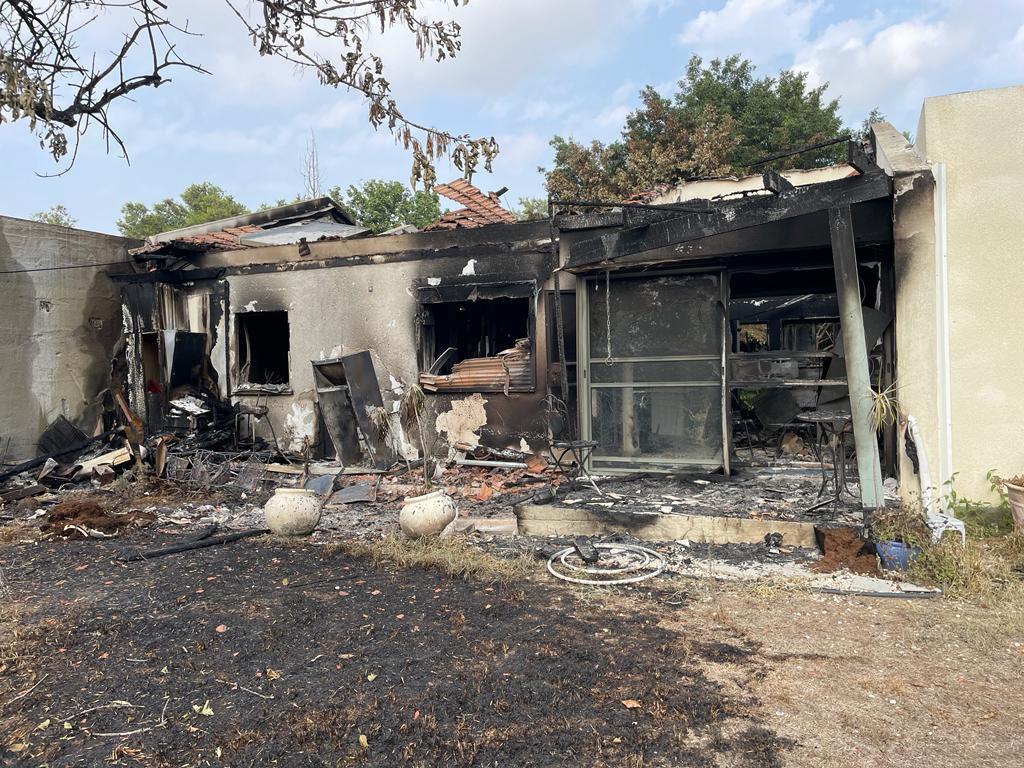
The pain of that moment felt enormous as the fruit of years of work – our home and our belongings – were reduced to rubble. Still, we had our lives. All four of us survived. Although the emotional frenzy delivered us to the depths of despair, I immediately sensed a permanent appreciation for life.
The streets presented an even greater horror; annihilation saturated every inch. I looked around at burnt-out cars, broken houses, despondent people, and soldiers running about. An army convoy rolled in to take over control. In the background, sirens still blared warnings as the threat of missiles loomed heavily in the skies.
Driving through the streets we saw corpses everywhere
In the distance, gunfire echoed from nearby communities. Helicopters roared overhead in the smokey grey sky. I suddenly realized; I was standing on a battlefield. I wanted to believe it was a nightmare; that my body lay sleeping in my bed and when I opened my eyes it would all be over. I wanted the horror to end.
Uncertain where to go or what to do next, I started to fix up what I could inside the house. When the soldiers finally organized our evacuation, we packed a suitcase. My father climbed into the driver’s side of the car, and I sat up front with him. My mom and sister clung together in the back. All of the survivors inched forward in a caravan, escorted by the army trucks and armored tanks.
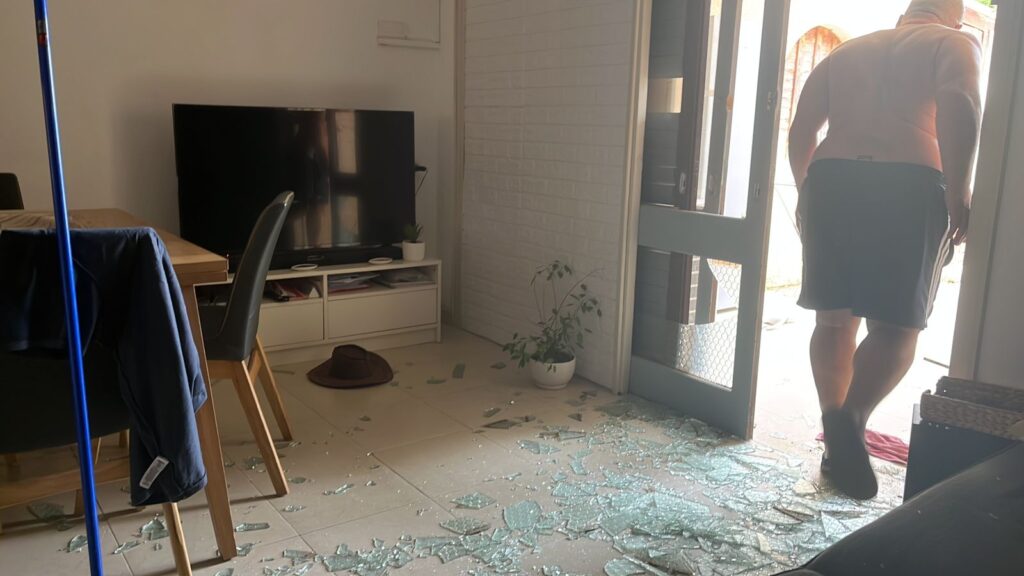
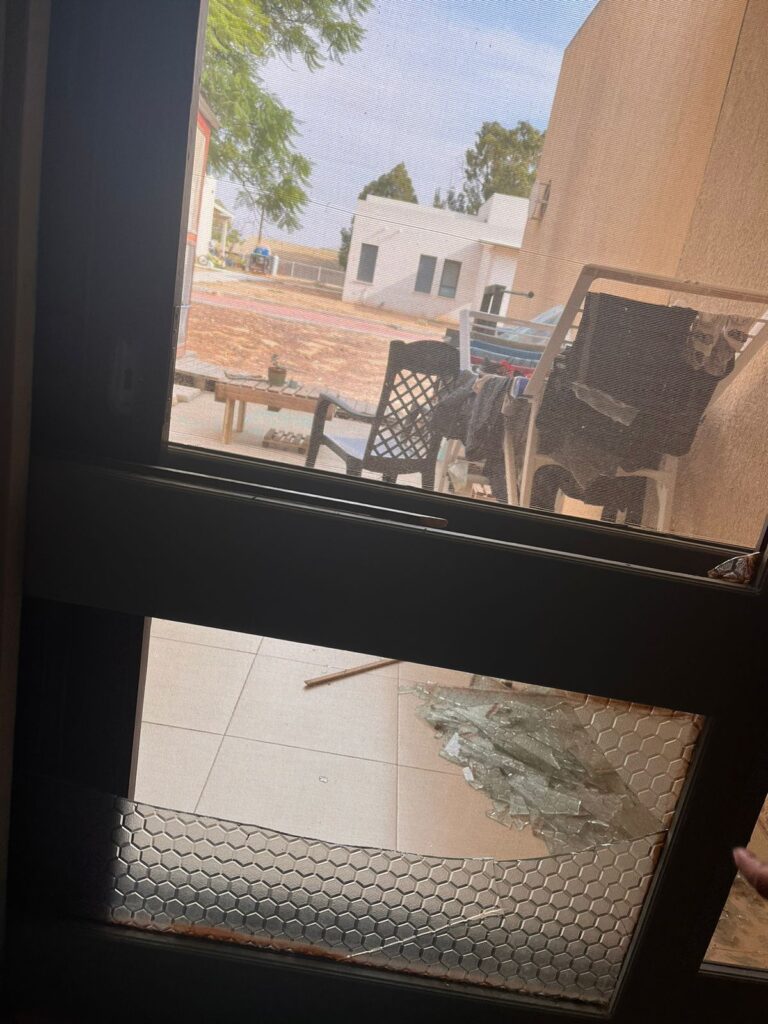
Now, moving beyond my own home, I saw the full extent of the attack sprawled out around us. I saw burned fields, vehicles destroyed, and human corpses lying everywhere. I felt like we stepped out of one nightmare and straight into another. Never could I have imagined my eyes resting upon such a scene.
As our tires moved us forward toward safety, we literally held our breath – unable to release any of the tension inside our bodies or to cry. It felt as if our anxiety had anesthetized us. On occasion, our parents tried to say something hopeful, but in the end, we were all just speechless. It seemed best to keep quiet.
We reached a safe place, and I found out many friends were killed
We arrived at 3:00 a.m. in Eilat, in the middle of the Negev desert. We settled in at a compound of houses being used as temporary shelter by the army. For the rest of the night, my mind stirred and sleep evaded me. I frantically searched the news to find out what happened and horrifying videos came into view. While I lived through it, I could barely comprehend the magnitude of the events that unfolded in Israel.
Reaching out to friends, I told them I was safe and unharmed. For several more days, I found it impossible to eat. The anguish that continued to consume me suppressed my appetite and closed my throat. The moment I awoke until I drifted back to sleep, memories of the attack consumed my every thought.
From the moment I found out Hamas brutally murdered some of my friends, I began to weep and I cannot stop crying. With any small stimulus, the tears come rushing back. I’m glad I can cry and unload these emotions a little. I still cannot find proper words to describe what we went through, but I want to keep trying. The community where we found shelter offered us psychological support and we need it. The images, smells, and the sounds of the attack eat away at me. I never imagined coming to Israel would bring us to this moment.
They shattered our dreams of a life in Israel
Growing up in Buenos Aires, while we lived a mostly secular life, our connection to the Jewish community remained ever present. My family believed in Zionism – the movement to reestablish a Jewish nation in Israel – and I longed to live there my entire life. Four years ago, at the dinner table, we agreed – we would move to the kibbutz of Ein Ha-shlosha and bid farewell to the hustle and bustle of the big city.
I felt so excited to leave behind the incessant movement of people and the pummeling noise to live at peace in a land so tied to our roots. These last few years, the kibbutz surrounded me with nature. I would stare out into the fields under a bright blue sky and listen to the birds sing. Love between neighbors offered my family a strong sense of belonging. We found a community and each member took on roles best suited to their lives.
In my final year at the university, I studied political science and worked as a teaching assistant. On Saturdays, known as Shabbat, everything fell quiet. Few cars dotted the roads and nobody worked – but this Saturday, Shabbat was shattered. We woke up to war and sirens; to murder and mayhem. The terrorists took our holy day – the peace and tranquility of nature and the neighborhood – and turned into a battlefield.
It wasn’t our day to die
My goal today is to try and regain some of that tranquility now. After all the adrenaline drained away and the fear dissolved – the days feel eternal. They stretch on and on and I wonder, “When will we resume our daily lives?”
I try to comfort the families of people killed, and I look for ways to keep myself busy. In this moment, my life feels cut short and I can’t put the pieces back together. The feelings are alien and I struggle to interpret them.
Collectively, we have no knowledge of what might happen next or when we can go back home – if we can go back home. It could be weeks or months. If the situation becomes untenable, we could go back to Argentina, but our lives are here in Israel. We would be starting from nothing.
I wake up every morning grateful to look upon my family’s faces; thankful we are well. Yet, waking also brings the nightmare back to life. I understand, the process of healing will take a very long time. We need to mourn, and we each do so in our own way.
I’m certain time will help us heal, but I wonder, “Why were we saved?” The image of that blessed door constantly comes to mind. Thank God for that door. I guess it just wasn’t our day to die.
